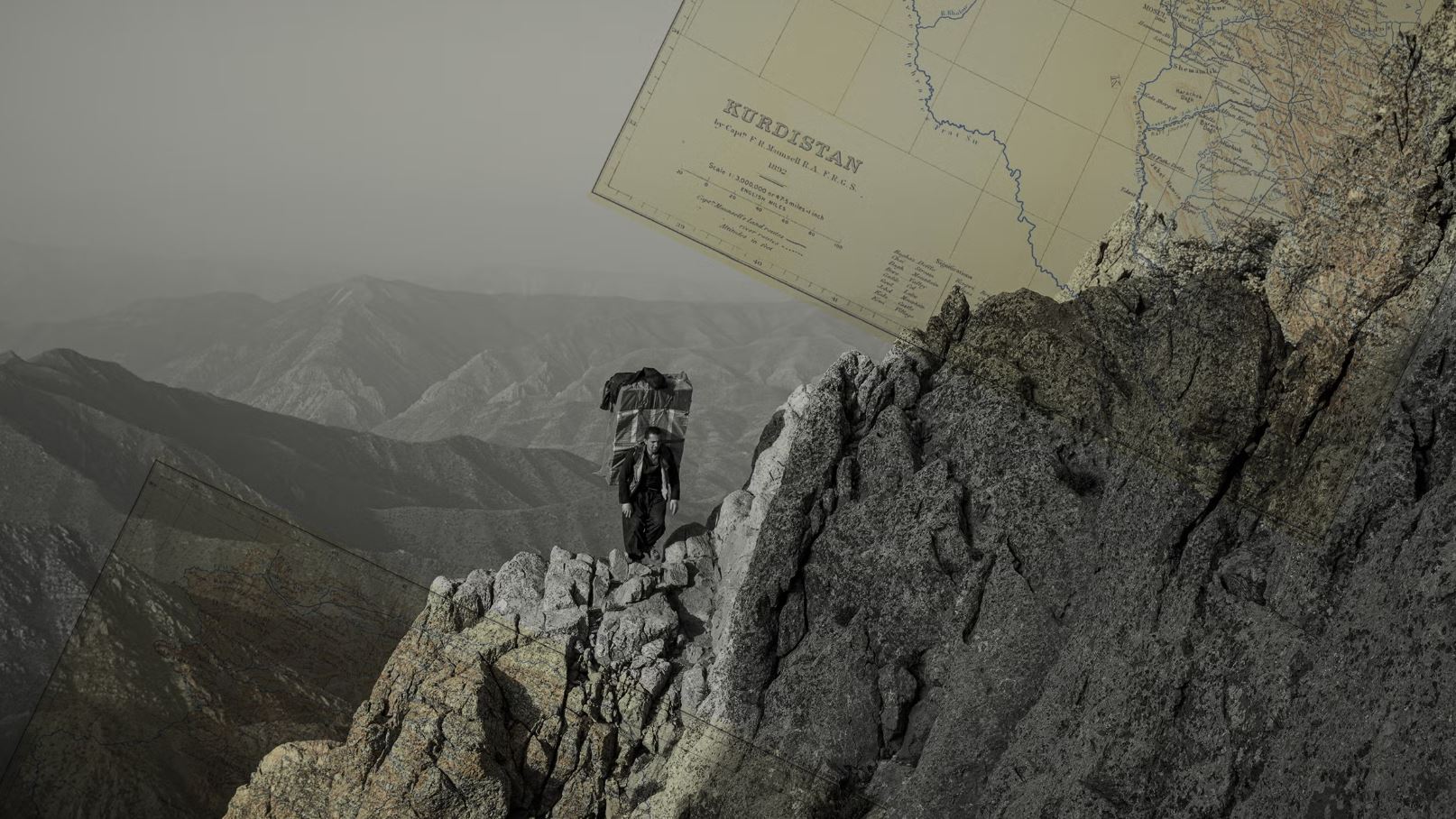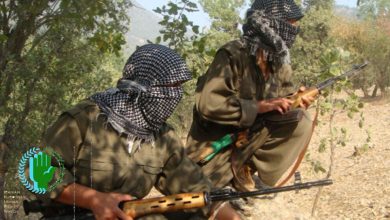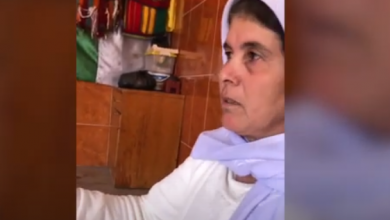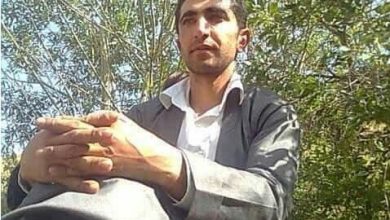Shayan Fattahi: A Story from Iran’s Border Regions
Shayan Fattahi, a 19-year-old from the town of Nowsud, is a stark example of the harsh realities of life in Iran’s border areas. In these regions, poverty, unemployment, and a lack of family support often push young people toward dangerous choices.
Deceived by a former resident of his village with the false promise of migrating to Europe, he found himself doing forced labor under brutal conditions at a KOMALA base for four months before deciding to return home. This story is not just about one person; it’s a reflection of the deep-seated social and structural problems in Iran’s border regions.
Life on the Economic and Social Fringes
Life on the economic and social fringes, especially in border areas, is a phenomenon widely studied in sociology. Due to their unique geographical and economic circumstances, these regions often face numerous challenges that can lead to specific social behaviors and unconventional livelihoods. One such behavior is “Kolbari”, a dangerous and informal job recognized in Iran’s border regions.
Young people, in particular, turn to Kolbari due to poverty and a lack of proper job opportunities. This situation is not only the result of economic problems but also of social and family structures. Parental divorce, family instability, and a lack of social support can put immense pressure on young people, steering them toward high-risk options.
However, the most significant responsibility lies with the government; if the Iranian government can provide equal economic opportunities for all regions, issues like Kolbari and fuel-smuggling will also be resolved.
About Shayan Fattahi
Shayan Fattahi, born in July 2004 in Nowsud, is a clear example of this situation. With a background of family and financial problems, he was looking for a way out of his difficult life.
The promises he received from his village peer led him down the path of illegal migration and joining the armed group KOMALA. This story is not just a personal account of one Iranian youth; it represents the bitter social and economic realities in the country’s border regions that force many young people to make dangerous decisions.
- Education: Junior high school graduate
- Current Job: Kolbar
- Family Issues: Parents divorced, financial hardship
- Entry to KOMALA: Lured by promises of migration to Europe by acquaintance Siavash Rahmani
- Time at KOMALA: 4 months at the Iranian Communist KOMALA base in Zargwez
Interview with Shayan Fattahi
Shayan! Please introduce yourself and tell us about your life before you joined KOMALA.
My name is Shayan Fattahi, born on July 4, 2004, in Nowsud and My life was never ordinary, My parents separated when I was still a child, and after the divorce, neither of them paid attention to me.
My mother was always worried about making ends meet, and my father went off to find his own work and life. The result was that I had to carry the burden of life on my own from a young age. I couldn’t continue my education past junior high.
When you have to constantly wonder where your next meal will come from, there’s no time left for school. That’s how I got into Kolbari. Kolbari means going to the mountains and the border every day and carrying loads that are sometimes heavier than yourself, just to make a few hundred thousand Tomans a day and survive.
If I had had financial support and my parents had paid attention to me, my life’s path certainly wouldn’t have led me to KOMALA and illegal departure from Iran.
How did you get involved with the KOMALA group? Did you know anything about them beforehand?
I had no real knowledge of KOMALA. I had only heard things from others, but I didn’t truly know who they were or what they did.
That’s when a guy from our village, named Siavash Rahmani, contacted me. I knew Siavash from before, but we were never close.
He started talking about an easy life and how I could get out of my situation. According to him, he had gone to Europe, become a refugee there, and was living a comfortable life. He also claimed that KOMALA had sent him to Europe.
To be honest, I was tired of a life of poverty and Kolbari. I told myself maybe this was a chance. Siavash told me he could connect me with KOMALA and open the door for my migration.
He promised we’d have easy work at the base, and then they’d send us to Europe with a house, a car, and a good life. Since I was looking for an escape, I agreed.
On January 16, 2023, with Siavash’s help, I crossed the border illegally and arrived at the Iranian Communist KOMALA base in Zargwez.
What were the conditions like at the base, and did the promises they made to you come true?
Not at all! Everything I had heard was nothing but lies and fantasy.
The first day I arrived, I was shocked. It was a small room that I had to share with several other people, and there were no facilities. From the bathrooms to basic amenities, everything was at the lowest possible level. We didn’t even have good food.
The conditions weren’t suitable for a normal life. Throughout my time in KOMALA, the living conditions never changed. Europe was completely out of the question.
Our days were reduced to political classes, which were really just propaganda and brainwashing sessions. After that, we took turns doing guard duty and heavy labor like working and carrying things around the base.
There was no training, no plan, and no news of going to Europe. I, who thought my life was about to be completely transformed, had become nothing more than a forced laborer.
We didn’t even get paid. At least with Kolbari, I got paid, but KOMALA was just a place for me to do hard labor for a worthless armed group.
During that time, did you try to leave KOMALA? Did the group even allow you to leave?
Leaving wasn’t that simple. After about four months, once I was sure there was no future for me there, I decided to ask them to let me go.
But even that request brought a lot of trouble. They tried to persuade me to stay many times and threatened that returning to Iran was dangerous, that I might be arrested or face a harsh punishment.
But I was tired; every day I spent there felt like a year. Finally, after a lot of pressure and persistence, they agreed to let me go.
On May 10, 2023, I managed to leave the base and return to Nowsud. This freedom was very precious to me.
What happened when you returned to Iran? Was the treatment you received what they had made you fear?
No, not at all. Contrary to everything they told us in KOMALA, I wasn’t treated poorly at all.
When I returned, the court just called me for a few sessions and asked me some routine questions. They asked me to explain the story of how I had entered and exited the country, and after that, they only gave me a small fine for illegal border crossing.
There was no harassment, no detention, and no torture. They even helped me get back to a normal life.
Now that you’ve returned and are doing Kolbari again, how do you feel about those days and the decision you made?
I honestly don’t know what to say. On one hand, I wish I hadn’t made that decision and wasted my time, but on the other hand, I thank God that I came back alive and realized that there’s no salvation on the other side of the border.
I’ve gone back to Kolbari now; it’s hard, exhausting work, but at least no one can deceive me anymore.
My life is still difficult, and every day I have to go to the mountains to make a living, but now I understand that the right path isn’t to chase after lies and illusions. At least I work for myself, and I get paid for it.
If you had a message for other young people in your situation, what would you say?
I would say, don’t fall for false promises. These groups don’t care about you or your future. They’re only looking to exploit you. Life is tough, but the right way is with patience and effort, not by escaping into dangerous traps.
Kolbari is a hazardous informal job practiced mostly in Iran’s border regions, where people—called “Kolbars”—carry heavy loads across mountainous borders to earn a living, often facing severe risks like harsh weather, accidents, and border security forces.






